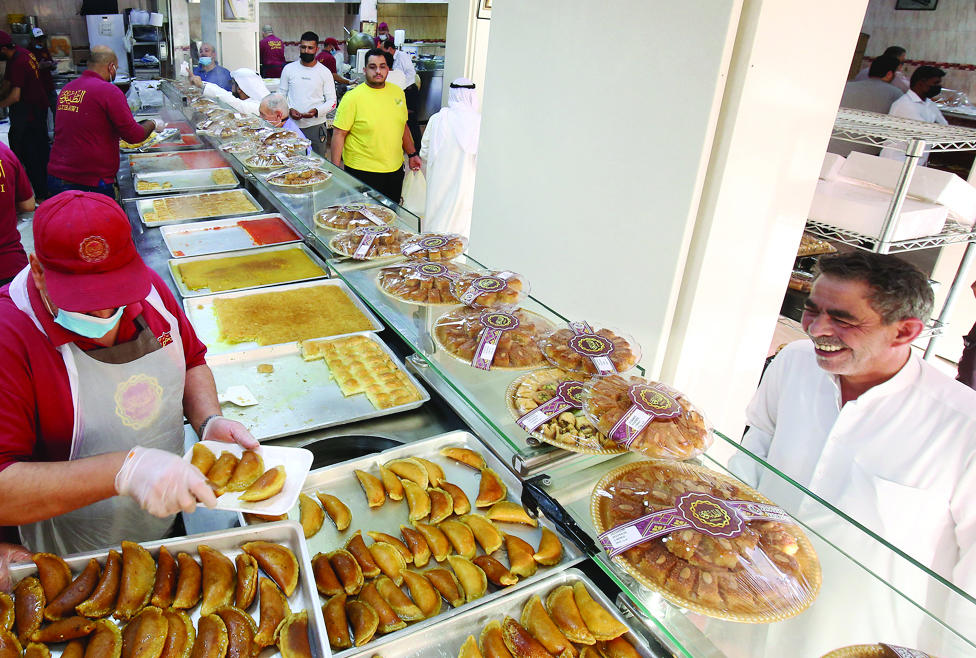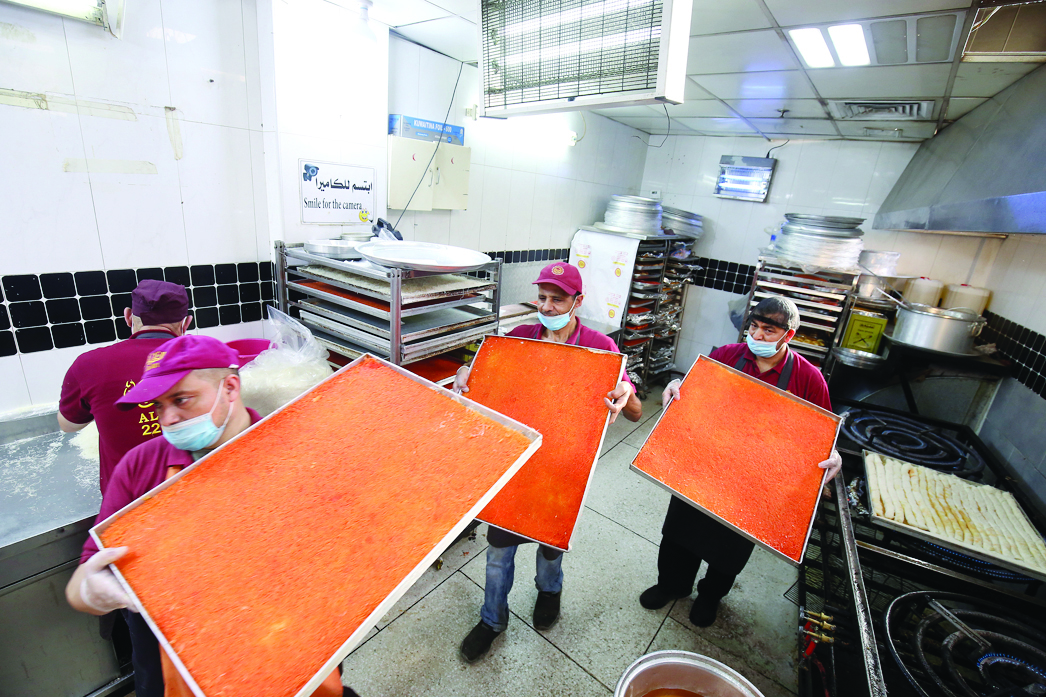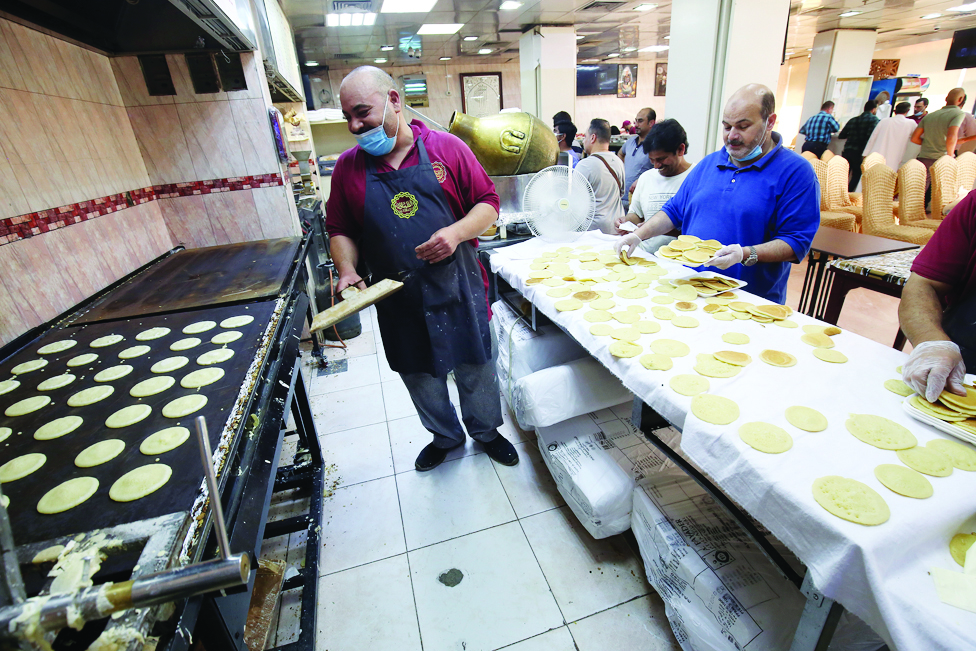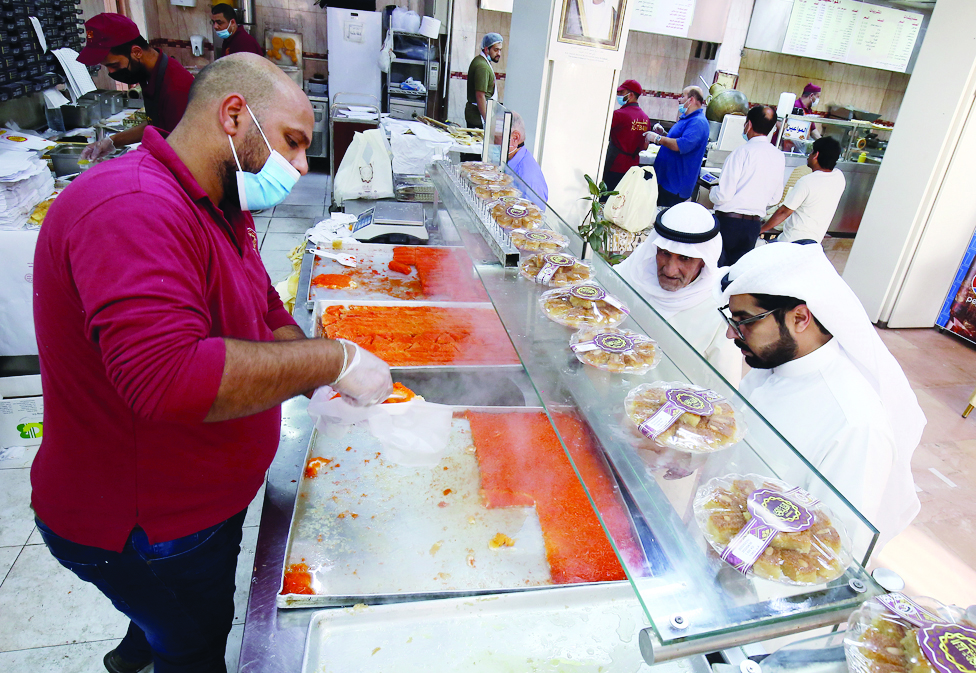By Nawara Fattahova
KUWAIT: After almost two years of disrupted social activities due to the coronavirus pandemic that included two Ramadans, Kuwait is back to normal, and this year is the first Ramadan when gatherings are permitted again. The ghabqa, which is a Kuwaiti tradition where people gather for a meal that is after iftar and before the suhour, is one of the activities that was abandoned or very limited due to the pandemic for the past two years.
Now that people can gather again in large numbers, ghabqas are back on people's schedule. Unfortunately, most companies suffered losses due to the pandemic, which has affected their budget to organize social events. So there are fewer ghabqas at restaurants, hotels and ballrooms, or limited to smaller number of guests.
People's fear of getting infected has also affected ghabqas, as the virus hasn't disappeared completely. So even people who used to organize ghabqas for their family and relatives in big numbers, now prefer to keep it simple and limited to a few people. Conversely, a sales manager at a five-star hotel in Kuwait said even though Ramadan has just started, they already have most of their ballrooms booked.



A beauty salon that used to hold ghabqas for their employees told Kuwait Times this year they won't organize a ghabqa. "We suffered a great loss during the pandemic, as we were closed for many months and many of our staff left the company. We can't afford additional expenses. Hopefully, next year we will organize it again," Fatma, the owner, told Kuwait Times.
Tharwat, marketing manager at a popular perfume company, said their company is excited to hold the ghabqa gathering again after two years. "We will hold the ghabqa this year for our employees as an appreciation for their hard work during the entire year. It will also be with the same numbers - the only difference will be respecting health conditions and precautions required by the hotel where the ghabqa will take place," he explained.
Um Hamad complained that before the pandemic, she used to receive three or four invitations for ghabqas by her friends, but this year she hasn't received even one. "We miss the old gatherings, but it seems people are still affected by the fear of the coronavirus. Ramadan is still in the early stages, and I hope this will change," she said.











